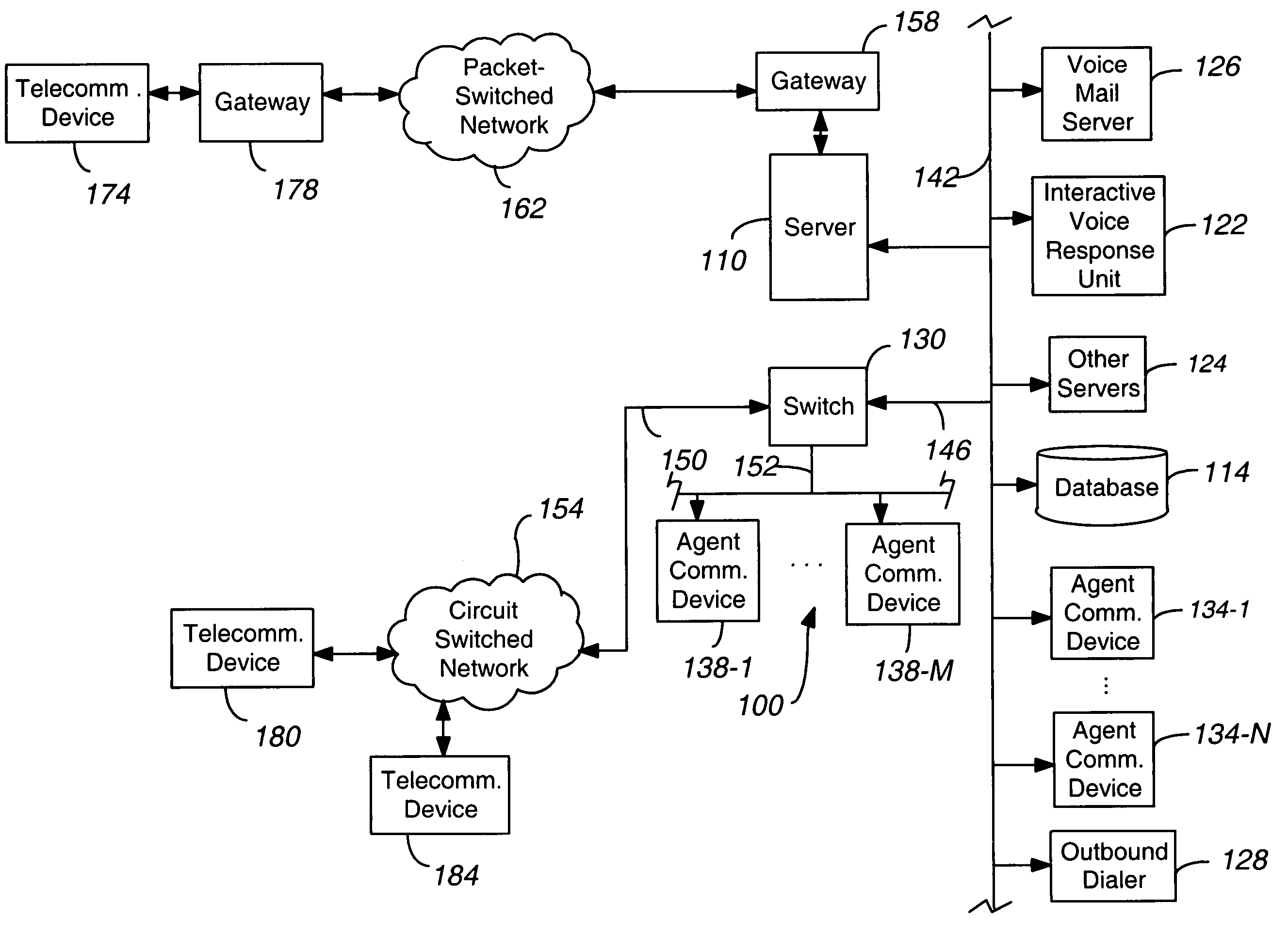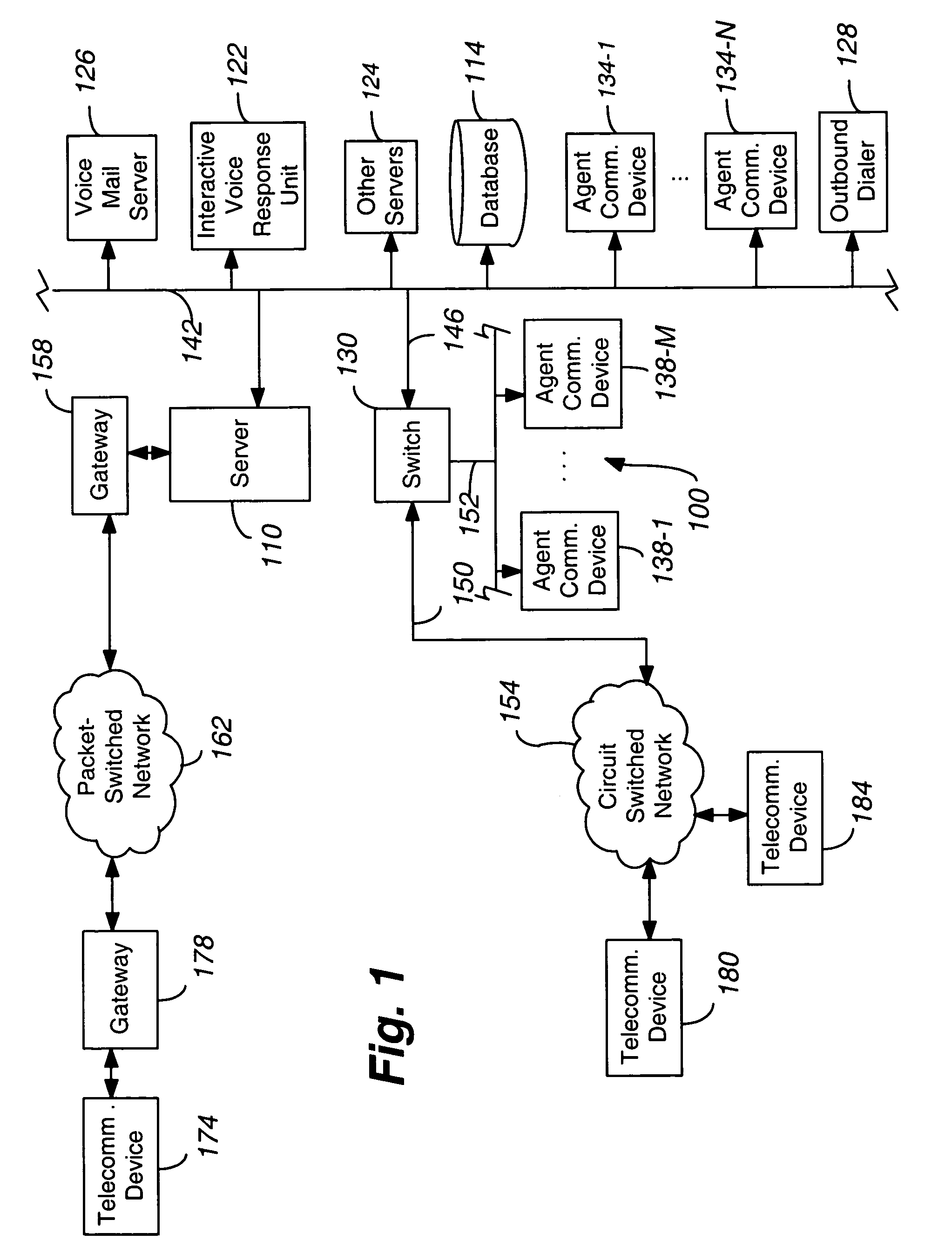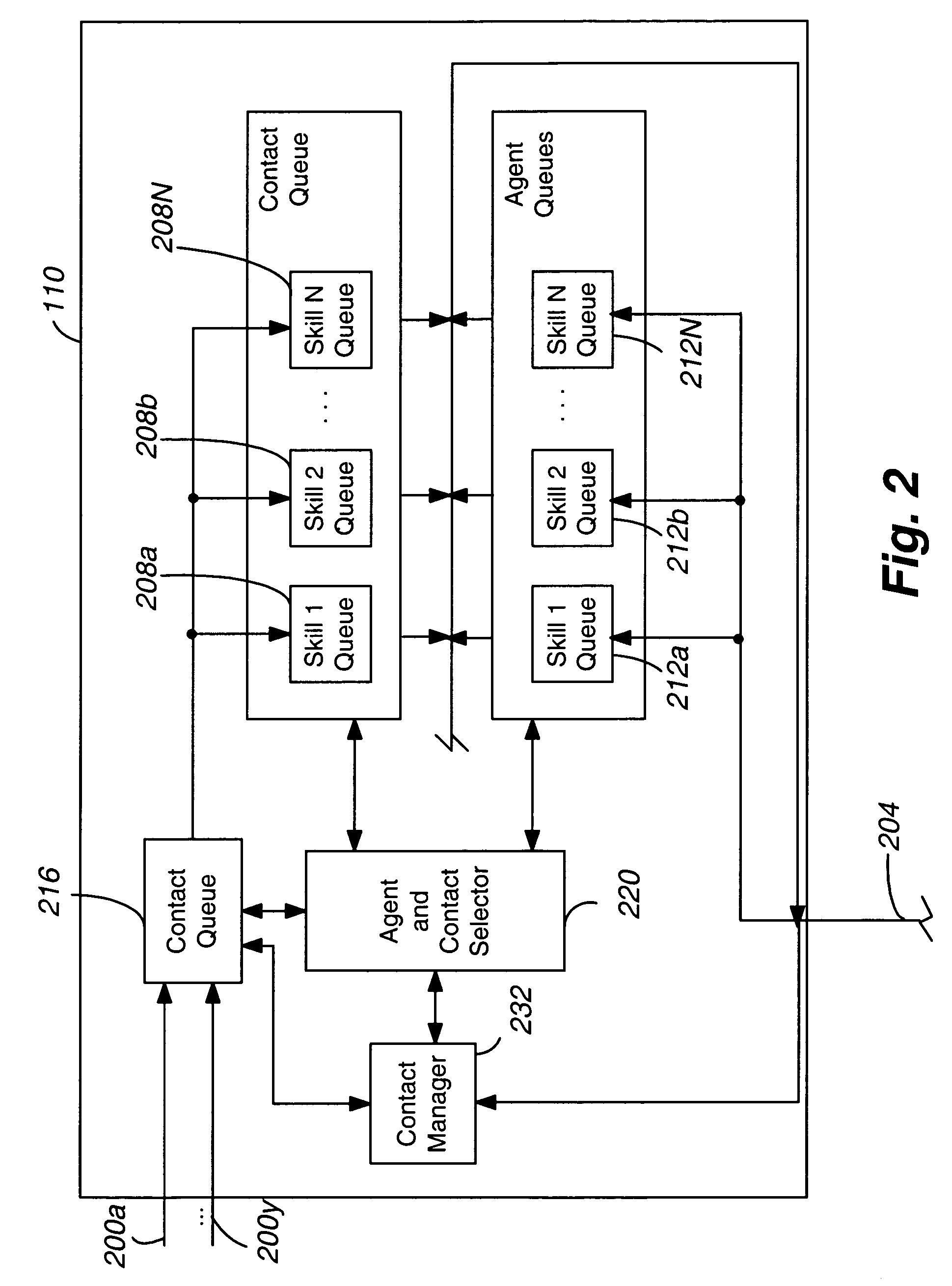Post-termination contact management
a contact management and post-termination technology, applied in the field of automatic transaction distribution systems, can solve the problems of many users abandoning contact, increasing the cost to the customer associated with the interaction with the contact center, and reducing the time required for the customer to receive service. , to achieve the effect of shortening the time required for the customer to receive servi
- Summary
- Abstract
- Description
- Claims
- Application Information
AI Technical Summary
Benefits of technology
Problems solved by technology
Method used
Image
Examples
Embodiment Construction
[0020]The invention will be illustrated below in conjunction with an exemplary communication system. Although well suited for use with, e.g., a system having an ACD or other similar contact processing switch, the invention is not limited to use with any particular type of communication system switch or configuration of system elements. Those skilled in the art will recognize that the disclosed techniques may be used in any communication application in which it is desirable to provide improved contact processing.
[0021]FIG. 1 shows an illustrative embodiment of the present invention. A contact center 100 comprises a central server 110, a set of data stores or databases 114 containing contact or customer related information and other information that can enhance the value and efficiency of the contact, and a plurality of servers, namely a voice mail server 126, an Interactive Voice Response unit or IVR 122, and other servers 124, an outbound dialer 128, a switch 130, a plurality of wor...
PUM
 Login to View More
Login to View More Abstract
Description
Claims
Application Information
 Login to View More
Login to View More - R&D
- Intellectual Property
- Life Sciences
- Materials
- Tech Scout
- Unparalleled Data Quality
- Higher Quality Content
- 60% Fewer Hallucinations
Browse by: Latest US Patents, China's latest patents, Technical Efficacy Thesaurus, Application Domain, Technology Topic, Popular Technical Reports.
© 2025 PatSnap. All rights reserved.Legal|Privacy policy|Modern Slavery Act Transparency Statement|Sitemap|About US| Contact US: help@patsnap.com



